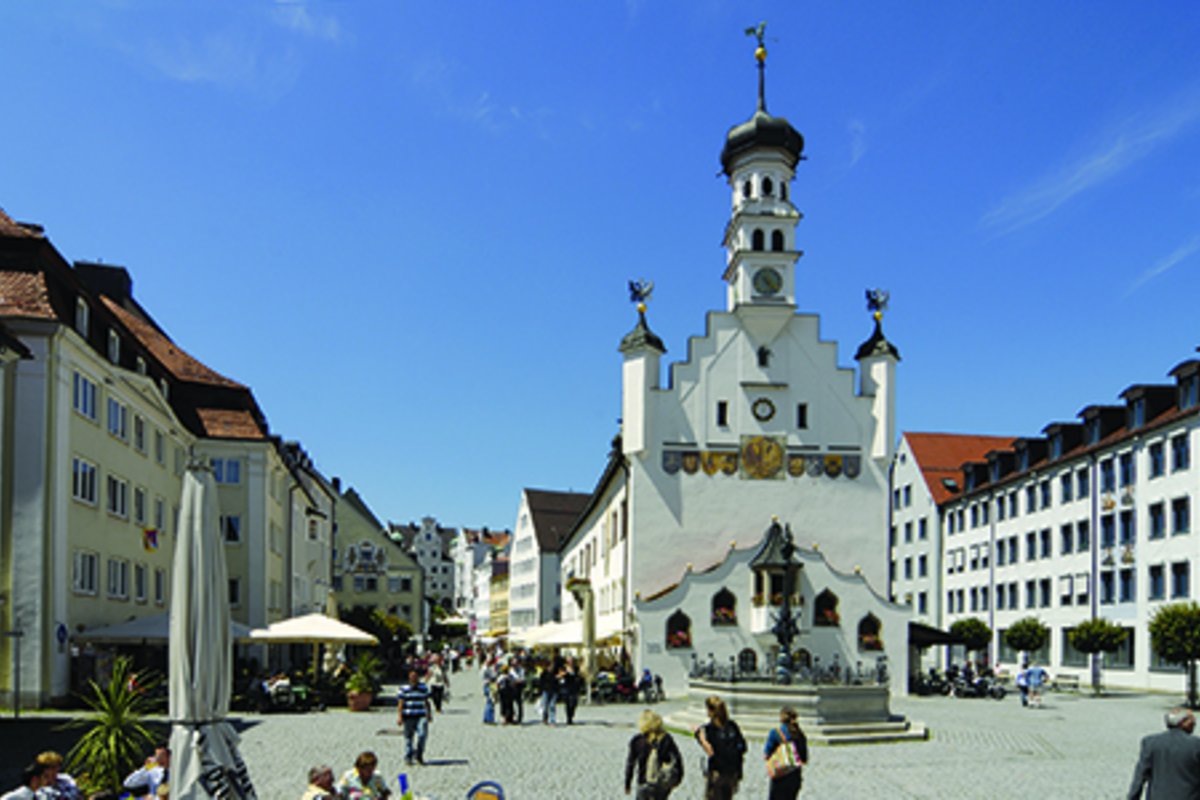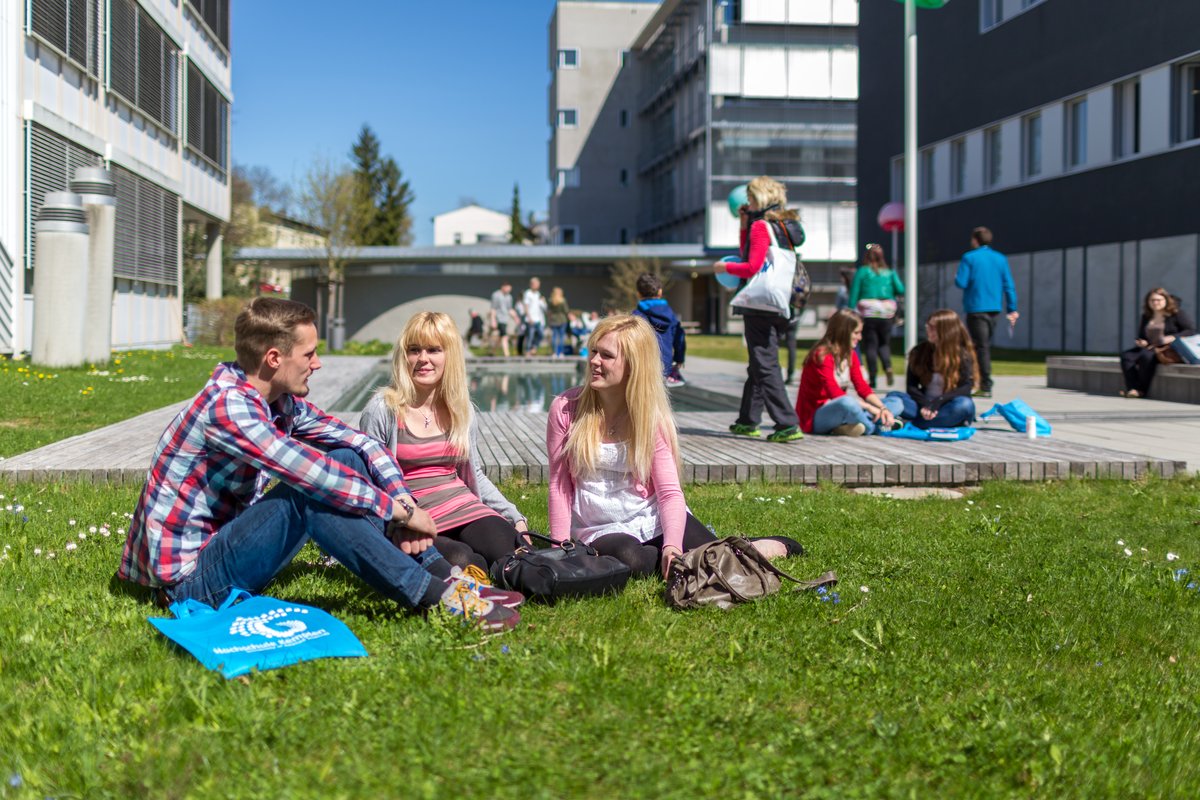
Have you already completed educational training and would like to enhance your qualifications by studying social work? This professional part-time bachelor’s degree programme prepares you exceptionally well specifically for child and youth work, but also more broadly for many other areas in the sector. The demand for specially qualified child and youth support workers and experts in adult educational work continues to grow, providing a particularly wide and diverse range of career options.
This degree programme is directed primarily at full-time educational experts in child and youth work, such as state-certified educators. The core subjects in social work – relating to its history, theories, methods and organisation – are combined with the central fundamental principles of the related sciences, i.e. educational science, psychology, philosophy, sociology and social policy. In addition, we also encompass key aspects of law and business administration. This degree programme is run in collaboration with Bayerischer Jugendring (BJR) (“Bavarian Youth Ring”) and Gauting Youth Work Institute.
At a glance
Award
Bachelor of Arts (B. A.)
Study mode
part-time professional
Standard duration
7
ECTS credits
210
Starts
winter semester
Restricted admission
yes
Taught in
German
Faculty
Social and Health Studies
Study abroad
optional
Maximum number of participants
30
Accreditation
AHPGS, German Accreditation Council
Details about this course
Building upon your previous experience, you will spend the first semesters learning about the basic professional and scientific principles of social work. Besides the core subjects of history, theories, methods and organisation of social work, importance is also placed on interlinking these with their related sciences.
Instead of spending one entire semester completing an internship, you will work on three practically focused projects in total between the first and sixth semester, each lasting two semesters and supervised by a formally qualified expert in social work (state-certified social educationalist). Two of these projects should, if possible, focus on your working environment and enable you to form profound links between theory and practice, while another must address a different field of work than your own. Academic supervision for the three practically focused study projects will be provided in the form of blended learning, using the Moodle learning platform implemented by Kempten University of Applied Sciences.
Other areas of study focus on methodical and thematic aspects such as “Project and conceptual development in social organisations” and “Discussion and advice in social work”. Semester 7 covers more advanced academic work and subject matter.
Upon successfully completing the programme, the university of applied sciences will award you the academic degree of Bachelor of Arts (B.A.) and the right to use the professional title “state-certified social educationalist” in accordance with BaySozKiPädG.
Besides equipping you with a higher qualification in the field of child and youth work, this degree programme also prepares you to potentially switch to other areas of social work, particularly for support work with children and adolescents in general and for adult education. Experts in these fields are anticipated to be in high demand in the years ahead, which means you can expect a wide range of diverse job opportunities to match your level of qualification.
Fields of activity:
- Adult education
- Youth social work
- Youth careers advice
- Social work in schools
- Youth aid planning
- Socio-educational family support
- Street work
- Educational and family advice centres
- Addiction counselling
- Educational support
- Juvenile court assistance
- Managing a children’s daycare facility
- General social services
- Integrational assistance and inclusion
- Social work with the elderly
- Women’s housing
- Intercultural social work with refugees and/or migrants
- Social work with the homeless
- Debt counselling
- Managing a social facility or unit
Application process:
This degree programme is aimed particularly at full-time educational experts in child or youth work (in accordance with § 11 SGB VIII), such as state-certified educators and other workers with an equivalent qualification.
Candidates must fulfil the following admission criteria:
- Fully trained state-certified educator, or equivalent training certificates; you can apply for recognition of these on an individual basis.
- Eligibility for university; alternatively, successfully completed apprenticeship (lasting at least two years) followed by at least three years’ full-time professional experience in a related area of work, or a master of crafts certificate.
- As study projects with a practical basis in the field of child and youth work are to be conducted from the first through to the sixth semester, students fundamentally need to be employed in these similar fields of social work at the time.
We have pooled all the information and details you might need about applying and the admission requirements .
About you:
Are you experienced in either professional or voluntary child and youth work? Do you enjoy engaging with scientific correlations, learning independently and working as part of a team? Then you meet the criteria for this bachelor’s degree programme to a tee!
Allocation of places:
Places on the professional part-time bachelor’s degree programme in Social Work majoring in Youth Work are allocated via the points-based “Supplementary Higher Education Selection Process”, which awards points towards the average grade of candidates’ eligibility for university. Additional points can be earned for activities, previous experience and/or awards outside school that are relevant to the chosen degree programme that improve your ranking in the priority list for a place on a course.
You can access the documentation for evidence of equivalent training certificates and of your experience in youth work under “Downloads”. Please follow the instructions provided for completing these documents.
We ascribe to the values of openness, tolerance and acceptance. Our aim is to teach everyone involved at Kempten University of Applied Sciences about education in an international context. As part of this, we support university-wide, inter-faculty measures to promote international projects and cross-cultural interaction.
Would you like to learn more about our international focus and the options we offer to study abroad? Then please take a closer look at our portal.
We compile all study programme and examination regulations centrally for you. There you will find all versions and changes. continue
Master's degree programmes
Graduates from this bachelor’s degree programme can go on to study on the following master’s degree programme at Kempten University of Applied Sciences:
Further details about the degree programme
Contacts
We know how exciting it can be to apply for and start a professional part-time degree programme. So we want you to know whom you can get in touch with if you have any questions about studying with us.
- Student Advisory Service
If you have any questions about studying, applying or admission requirements, please contact the Student Advisory Service. - Academic advice
If you are interested in this degree programme and would like to ask any specific questions, please contact the academic advisor / degree programme coordinator.
Martin Holzner (Director of Gauting Institute for Youth Work) also provides information about the degree programme. If you have any questions about studying in Gauting, you can also contact Martin Holzner directly
by emailing holzner(at)institutgauting.de .
State certification
Social work is a profession that generally requires state certification .
The Bavarian Social and Childhood Pedagogy Act (abbreviated to: BaySozKiPädG) has historically used the official job title: “State-certified Social Educationalist” / .
Important: Universities of applied sciences in Bavaria don’t issue state certification .
You can use this job title as long as you
1. Have graduated from an appropriate degree programme and
2. Are personally suitable – i.e. no previous convictions that would cast doubt upon your suitability.
You can prove this in the form of a current certificate of good conduct and the degree certificate .
Official confirmation that our degree programme B.A. in Social Work majoring in Youth Workmeets the requirements specified in BaySozKiPädG is provided here: General ruling for this degree programme.
Hence your degree certificate contains the remark:
“Having completed this degree programme, this graduate is allowed to use the professional title “State-certified social educationalist” according to Article 1 Para. 1 BaySozKiPädG. However, personal suitability is to be judged by the employer.”
Fees
The degree programme itself is free of charge. A semester fee is payable, and certain costs are associated with any overnight accommodation and catering required for attending special seminars, together with travel expenses for journeys to regional days and examinations. Classes attended at Gauting Institute for Youth Work incur fees ranging from 250 to 445 euros per semester (choice of: catering only, catering plus overnight accommodation, or catering with overnight accommodation in a single room). (Subject to minor changes.)
Collaborative partners
Kempten University of Applied Sciences is solely responsible for the degree programme, although we work in collaboration with the Bavarian Youth Ring and Gauting Institute for Youth Work . If you have any questions about studying in Gauting, you can also contact Martin Holzner (Director of Gauting Institute for Youth Work).
FAQ
Who is this degree programme for?
The degree programme is aimed in particular at full-time educational professionals, such as state-recognised nursery school teachers and professionals with a comparable qualification. It is advantageous if you work in the field of child and youth work (according to § 11 SGB VIII/KJSG), youth social work (according to § 13 SGB VIII/KJSG) or youth welfare in general (according to SGB VIII/KJSG).
What are the typical fields of activity for working with children and young people?
Not every aspect of educating children and young people counts as “child and youth work”, which is legally defined and regulated in the Social Security Statute Book VIII (§§ 11, 12 SGB VIII) / and the Child and Youth Welfare Act (KJHG). Essentially, youth work provides the opportunities offered to all children and young people that they can participate in voluntarily.
Typical fields of work
Educational experts in working with children and young people might be employed in the following segments:
• Open child and youth work
• Youth centres
• Mobile youth work, active playgrounds
• Community youth care, local youth work
• Young people’s associations and youth councils
• In fields directly adjacent to youth work in elective or compulsory full-day schools
Fields of broader child and youth support that don’t directly fall under child and youth work, such as:
• Nurturing children in daycare centres (nurseries, kindergartens, after-school care, etc.)
• Educational aid (mobile one-to-one aid, education in homes, …)
• Helping families to bring up children (family advice, family education, etc.)
• Youth social work
• Integration aid, custodial care or juvenile court assistance
What are the admission requirements for this degree programme?
You need to meet the following admission criteria to study for this degree:
- Fully trained state-certified educator, or equivalent qualification, which you can apply to be recognised on an individual basis.
- Eligible to study at university; or you must have successfully completed at least two years of vocational training followed by at least three years of full-time professional experience in a related field, or have successfully completed a master craftsperson’s examination.
Click here for information about the general admission requirements.
Click here for the admission requirements for this particular degree programme.
We have pooled all the information and details you might need about applying and the admission requirements here.
How do I apply?
New cohorts for this degree programme start each winter semester. You can apply online via the Kempten University of Applied Sciences website. For further details, click here.
What does a “professional part-time” programme mean?
You can continue to work (ideally, part-time) during this degree programme. Nevertheless, you should plan regular learning and study phases.
Our innovative concept, which combines block courses, regional days, e-learning and independent study, allows you to plan firmly with maximum flexibility.
The programme is designed to earn 20 CP (credit points) per semester, which equates to around 500 hours of study (per semester). This includes face-to-face teaching (blocks of classes & regional days), preparation and writing up, three practice-based study projects lasting two semesters each, e-learning units, independent study and examination days. Less time might be required, according to personal circumstances.
How can I apply for recognition of my existing skills?
Existing skills can be recognised either universally or on an individual basis:
1) Training as an educator universally recognised as 70 Credit Points
State certification as an educator is universally recognised. In this case, your certificate for having successfully completed this training is all you need to submit as evidence of your skills.
2) Comparable formal training individually recognised as 70 Credit Points
Other skills acquired elsewhere (resulting from similar vocational training, but also professional development courses, professional experience, or previous higher education) will be recognised if they are of equivalent value.
For the individual accreditation procedure, you must provide evidence of the skills that you have acquired. The Examinations Board of the Faculty of Social and Health Studies will decide on a case-by-case basis the extent to which they can be counted towards this degree programme. See Downloads: “Assistance with providing evidence of comparable training content” and “Module Handbook for the Degree Programme in Social Work majoring in Youth Work (professional part-time). Module 0: Modules that can be credited”
3) Further accreditation of experience in youth work pursuant toSGB VIII (CHILD AND YOUTH SERVICES ACT):
Previous experience and performance outside school, including in child and youth work, or current employment in this field of work will be looked upon positively in the local university selection process and boost your chances of securing a place on the programme. See Downloads: “Evidence of experience in youth work”.
In order to get the skills accredited that you have already acquired, you must enclose the university forms cited above and the relevant supporting documents with your application.
How much time do I need to anticipate studying?
The programme is designed to earn 20 Credit Points, which equates to 500 hours of study, per semester. The time required includes classroom teaching (block courses & regional days), preparation and follow-up work, three study projects over two semesters each, as well as e-learning units, independent study and examination days.
Time / workload per semester (October to January / March to July) = 20 Credit Points (500 hours of study):
- 12 block teaching days (9 days in Gauting, 3 days in Kempten)
- 6 regional days (in smaller groups close to home or online)
- Approx. ½ day for written or oral examinations
- 1.5 hr/week e-learning webinars (with recording)
- Practical study project (33.5 days working in allocated organisation)
- Independent study (own preparation and write-up for classes, revising for examinations and compiling study papers)
You can find a sample semester plan here.
What examinations must I take?
The timings and types of examinations are explained in the appendix to the relevant programme and examination regulations .
How can I secure recognition of academic qualifications or training that is similar to that as an educator to fulfil the admission requirements for studying?
Any qualifications that you might already have – from similar vocational training, professional development, professional practice, or in the form of credits from prior degree programmes – can only be recognised if the skills are equivalent.
You must submit evidence of the skills you have acquired and apply for them to be recognised. The Examinations Board of the Faculty of Social and Health Studies is responsible for making expert decisions on whether and to what extent skills can be recognised in individual cases.
Help with the application process is offered in “Assistance with providing evidence of comparable training content” and in “Module 0: Modules that can be credited” in the Module Handbook for the Degree Programme in Social Work majoring in Youth Work (professional part-time. These documents can be downloaded from the website.
What are the parameters for practice-based study projects?
Ideally, the practical study projects should be conducted during your working hours with your employer. Throughout the degree programme, students complete three practice-based study projects lasting 100 days in total (20 weeks spent working five eight-hour days). Each practice-based study project runs across two semesters. Your project supervisor must be a state-certified social educationalist. One of the three practice-based study projects must address a field of work other than your own.



